Today we have Christopher Leacock aka Jillionaire who staying true to his Trinidadian roots, fuses original Caribbean rhythms of soca with dancehall beats. Along with Diplo and Walshy Fire, he was a member of the electronic music group Major Lazer until this past June when he left the group to pursue solo projects. Major Lazer is best recognized for the global smash “Lean On” featuring DJ Snake and MØ and “Cold Water” with Justin Bieber and MØ. “Cold Water” became their second track to achieve one billion streams.
TRANSCRIPTION:
Hello and welcome to episode 28 of Sing! Dance! Act! Thrive!
Today we have Christopher Leacock aka Jillionaire who staying true to his Trinidadian roots, fuses original Caribbean rhythms of soca with dancehall beats. Along with Diplo and Walshy Fire, he was a member of the electronic music group Major Lazer until this past June when he left the group to pursue solo projects. Major Lazer is best recognized for the global smash “Lean On” featuring DJ Snake and MØ and “Cold Water” with Justin Bieber and MØ. “Cold Water” became their second track to achieve one billion streams.
Jillionaire has been touring worldwide with Major Lazer since 2009 including performing at festivals such as Coachella, Trinidad Carnival, CMJ Music Marathon, Electric Daisy Carnival, South by Southwest, and Mad Decent Block Party. He continues to establish himself as an innovative and creative producer and has invested in various technology startups.
As the audio was taken from the press conference and Q&A at the Collision tech conference that happened in Toronto in May, many of the questions are about technology and how it relates to music. I had the opportunity to ask a question at the press conference, however, the rest were from others so I will pop in to let you know what was asked.

Diane Foy 0:04
Welcome to Sing Dance Act Thrive, featuring conversations with performing artists and industry influencers on what it takes to succeed in the arts. I am your host Diane Foy and I believe that you really can make a living from your creative talents. As a publicist, podcaster and coach. My mission is to educate, motivate and empower you to thrive with authenticity, creativity, and purpose.
Hello, and welcome to episode number 28. of sing dance act thrive. Today we have Christopher Leacock aka Jillionaire, who staying true to his Trinidadian roots, fuses original Caribbean rhythms of Soca dancehall beats. Along with Diplo and Washy Fire, he was a member of the electronic music group Major Lazer until this past June when he left the group to pursue solo projects. Major Lazer is best recognized for the global smash “Lean On” with DJ Snake and MO and “Cold Water” with Justin Bieber and MO. “Cold Water” became their second track to achieve 1 billion streams. Jillionaire has been touring worldwide with Major Lazer since 2009, including performing at festivals such as Coachella, Trinidad Carnival, CMJ Music Marathon, Electric Daisy Carnival, SXSW, and Mad Decent Block Party. He continues to establish himself as an innovative and creative producer and has invested in various technology startups. As the audio was taken from the press conference and QA at the Collision tech conference that happened in Toronto in May, many of the questions are about technology and how it relates to music. I had the opportunity to ask a question at the press conference, however, the rest of it is from others so I will pop in to let you know what was asked. And because It was at this big conference, the sound is not the best, especially the first part with my question that was at the press conference, somehow that’s even more louder than the Q&A so bear with the sound but there’s some great information there about the music industry and how it relates to technology. So I hope you enjoy it. For a transcript of this episode, visit singdanceactthrive.com/028
Hi, I am Diane Foy and I have a podcast for performing artists called Sing! Dance! Act! Thrive! And it is here to help up and coming artists. So if you need advice for up and coming artists to in their career but also, I was wondering how has technology impacted the way you create music? And how do you see that going in the future?
Christopher Leacock 3:13
It has always been you know, [ inaudible ] Anybody can be a creator, anybody has a cellphone they can make a song or they can make a movie or they can do what’s [ right ]. So, just my advice just be to be aware of what tools are available to you.
Diane Foy 3:34
So do you think producers and DJs just understand technology more than the average person?
Christopher Leacock 4:05
I mean, I think that we all kind of get it, you know, because we have all created this together. You know, I think that over the last two or three years, [ it will be just finally ] being creatives in their own rights, you know, you, you have an idea in your head. And then you make this thing, and then you give it to the rest of the world and you expect acceptance, you know, you expect it to be to be acknowledged and to be accepted. And it is the same thing. If it is a song, or it is a painting, or it is a photograph, or it is a dance piece or a film, or an application. You know, it is pretty much the same process.
Diane Foy 4:38
What advice do you have for up and coming artists? And what challenges did you face along the way?
Christopher Leacock 4:45
Well, when I was a baby, I used to sleep on a private jet, so I can’t relate. You know, I think that it is really about persistence. You know, I have I have had friends before who would ask me the same question. They are like, how do I do this? And how do I do that? I think it is just really being persistent. Be true to your craft, you know, continuously developing your craft, practicing, communicating with and sharing with people and eventually, you know, as you go through your own personal growth and technical goals, you know, somebody is going to take, take notice of that and, you know, kind of give you a little push along the way.
Diane Foy 5:20
How did you connect with Major Lazer?
Christopher Leacock 5:22
Geez, we met I mean, I have known, I was maybe about 20 years ago was you know, [ about me just as like, ] over 10 years. And it was just naturally, you know, we were just we were just always friends for those who were music lovers first, you know, so, you know, the whole idea was very, it was very organic, you know, so I do not think there was any kind of like real like clicking point. [ I mean, me and Louisa and West slept in a once together and then we still a blanket, and then we slept on it. And yeah, so if you want a real story to ask right here you for two days in a dog house. ] So, I mean, yeah, you just kind of, you develop a friendship and you develop up those bond over time, you know, so I do not think there was really any kind of like, click moments like that.
Diane Foy 6:10
What apps or tools do you recommend for musicians?
Christopher Leacock 6:14
I mean, you just have to, you have to use the tools that are available to you. You know, I mean, I think it is really up to you to do your research and kind of figure out what is out there. And I am not saying that to be facetious. It is just that regardless of what environment you are working in, you have to find the tools that are available to you, you got to find the tools that are available to you within your price bracket, you know, so if that means, you know, being a visual artist and and downloading software illegally so that you could use Photoshop or AutoCAD or if it means that you are a musician and you just started using Garage Band or whatever it is, you know, you kind of have to kind of figure that out for yourself. You know, some people do amazing and using the simplest most rudimentary tools and then some people have you know, hundreds of thousands of dollars worth of equipment available, it is an app, that does not mean that one is necessarily going to be better than the other, it does not do anything is really going to come down to the emotional difference in the, you know, the the passionate attachment to their work. So I do not think that is like a specific tool to say, well, like, Yeah, all businesses should use this. If you press this button, a hit comes out, you know, [ so you’re ] going to come back to you.
Diane Foy 7:23
What areas of technology interests you?
Christopher Leacock 7:27
That is a good question. I am very interested in how we can use technology to assist in the human condition. So if the tools that we can use to digitize, you know, difficult or expensive or time consuming aspects that I think that that is somewhere where you can use technology to provide real value to be 99%. I come from a technology background I worked in enterprise of course, I really do not have much interest in like, enterprise tools so somebody told me about SAS global expansion it is kind of like is over my head. But you know, the mere fact that we can use our phones to call a taxi or deliver lunch or, you know, help us relax. Those things to me I am very excited and have real value, so it is more about how we can use, you know, the same big ideas but to help solve you know, the human problems.
Diane Foy 8:29
When it comes to digital design and artwork, what do you think about the visual aspects of music?
Christopher Leacock 8:36
Right, [ you just eat a lot of acid ] and you spend two days in a room doing it. No, I mean, I think that I think that, you know, we we live in such an amazing environment right now where we can kind of do whatever the hell we want, you know, so I think that, you know, a lot of people as creatives they face challenges they you know, they face identity challenges, they face the challenge. And you are like, man, like, what should I make? You know? And how should I present my work and all of these separate things, and where will this come on to, it is like, yo, make what you like, you know. If you want to do something that somebody else thinks is weird and crazy in that field is there is a high possibility that other people are going to enjoy it as well.
Diane Foy 9:21
Can you talk a bit about royalty rights management and Spotify?
Christopher Leacock 9:27
I mean, I think that Imogen Heap is probably the biggest champion of that right now. You know, one of the one of the biggest challenges with royalties and just rights management and cash management is something that Akon was talking about two days ago, which is that even if, even if Spotify says, hey, you know, like, we pay you, you know, 0.1 cent per stream, and they say, oh, you made 2 million streams, there is no way for me to really know that I kind of have to trust them on that you know. So obviously there is a lot of talk about blockchain and and using new technologies to provide accountability and so on but realistically so much of that is so very far away that I think that for right now, you know, I mean, we just have to trust the [ overlords ] and hope that you know that they they given us you know some respectable percentage of what is truly due to us you know but that whole you know the music industry so, okay good music industry has not really evolved the back end of it has not evolved since its inception. You know, obviously we have new ways to consume and we have new ways to create but the actual distribution mechanism has pretty much stayed the same you know. What we have been up to this chain so we move from, you know, cassettes to CDs to vinyl, and now to stream it but at the same time, you know, it kind of like what we create goes into a black box and then the and then that black box is [distribution ] and then it comes on the other side. So until there is a wave up for each of us to actually own our own distribution, then we do not really have a way of knowing what, you know, like [ inaudible ] they could have like, you know, a bunch of, you know, dudes in the back making those numbers up. So we just have to trust them at this point.
Diane Foy 11:25
When collaborating with other artists, what is your process when there is conflict?
Christopher Leacock 11:31
Just saying real life, what do you do when you and your sister get in a fight? You know, you have to figure you have to figure it out. You have to talk about it, you know, yeah. I mean, I do not think that this is like a process it is just like, it is something that you have to do, you know, you try to surround yourself with people who are like minded, but at the same time, you also surround yourself with people who are very strong minded, you have to respect that, you know, and sometimes some days is a hierarchy of strong mindedness, and then sometimes you just sit down you have a conversation about each other to as to adults.
Diane Foy 12:05
Can you talk about your vision for Soca Music?
Christopher Leacock 12:10
I mean, I think, you know, we have had a big opportunity Soca Music over the last few years. And my role, which was very difficult for me to accept at first, as was as a cultural ambassador, you know, and the biggest opportunity that we had, as a group, you know, which is on [ success and with feasibility ] was being able to break down doors for artists, musicians, producers from the Caribbean. Whether they were whether it was you know, budget master from Trinidad or working with Beanie Man, Sean Paul, Conscience, Idonya ] any number of Jamaican artists working with any number of Caribbean producers first class London feature, Russian and the list goes on. I you know, I cannot even tell you the name. So I think that you know, we have always had a strong legacy Caribbean music not just in Soca Music not just in, in dance or not just any music from Jamaica and I not just any music from Trinidad but from all across the Caribbean, you know, Rupees from Barbados and Rupees, you know probably has one of the biggest Soca Songs of all time. Kevin, Mr. Santana from from St. Vincent. So we have a strong heritage and it is just important for us to to continue to build on that and continue to build on our the exposure that others have, or the opportunities that others have have presented for us, you know, on the backs of the Sean Pauls and so on and so on.
Diane Foy 13:36
How do you see art affecting technology and how do you think tech affects music?
Christopher Leacock 13:43
How do we see other music affected and vice versa? You know, like I was saying before, we are all creators, everybody all do has one of these [ books ] as a creator. And, you know, I tell people a lot of times that if you could kind of put two songs sticking in your head, you can probably put two colors together on a canvass that do not necessarily make you a painter, but you understand aesthetic, you have an idea of how things should look and feel, you know how things should work together. And I actually had a guy say to me last night, he is like, you know, musicians make good. Like what you saying like, like a technologist or something. Because for us, a lot of times, we have to find a way to get was inside our head and put it on paper or present it to our audience. And we also have to find a way to optimize that process, using whatever limited resources we have access to. So it is crazy, because I think that the two things I am always very much going hand in hand is just that for a very long time because we were using technology to address enterprise level problems instead of using technology to address personnel problems. They was not necessarily that parallel, but not to be in a space where, you know, we saw the personal problems. I mean, we address real personal issues that people look at it and go, Oh, like these guys are using the same process. You know are they using the same thought process? Or in the same direction?
Diane Foy 15:10
What tech or platforms are you most excited about?
Christopher Leacock 15:15
You know, I have just been using a lot of the same stuff for so long you use Dropbox use we transfer, you know, email, it is pretty basic, pretty boring. You know, I do not think that there is anything that is brand new that, you know, that I could think of that I can say, oh, like that thing is what I have been using recently, you know. In fact, I have been talking to a couple of guys here at the conference, who are talking about making project management solutions for musicians. And the thing about it is that while it might seem like a good idea to say hey, let us have one cure all for for everything, you know, like a one Swiss Army Knife thing that is going to you know, you do not as I you know, use the same thing to clean the toilet that you used to take a bath with that you use a brush in here that you use, you know, it is like it is all a brush right but you aint not brush your teeth and brush your hair and brush the toilet with the same thing you know. So it is useful sometimes to have separate tools as to have a tool suite as opposed to saying well, I have one thing that is going to solve every problem related to music industry or related to creating music or related to creativity in general, you know. So for me, it really comes down to using a suite of tools whether it is SoundCloud, email, Dropbox, we transfer etc, etc. And then to you also have so many ways to communicate now you know, so like, you might have a conversation with somebody on Instagram, you might have a conversation with them on Twitter, you might have a conversation with them on email, but there is nothing that is going to be having a conversation in person in the same way that is and that’s going to beat you know, sitting in a studio and working with somebody face to face one to one as opposed to communicating with them using whatever tools you use via the internet. Thanks, guys.
Diane Foy 17:12
Thanks for listening to Sing Dance Act Thrive. Be sure to join the mailing list at dianefoy.com to gain access to exclusive bonus content, a weekly newsletter and an invitation to our private Facebook group of purpose driven performing artists and industry influencers.


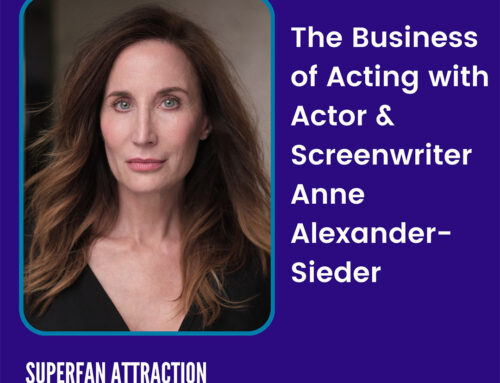
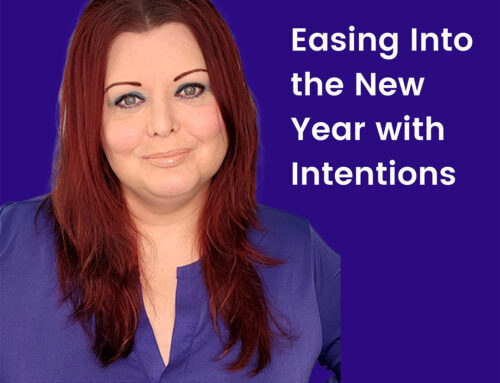
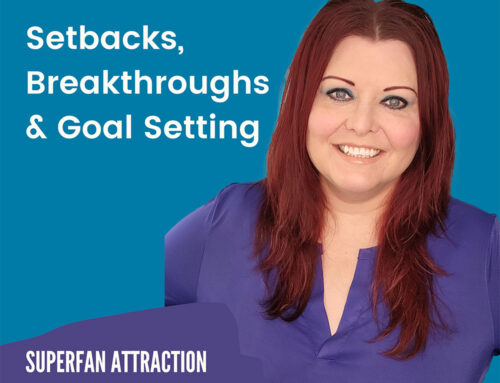
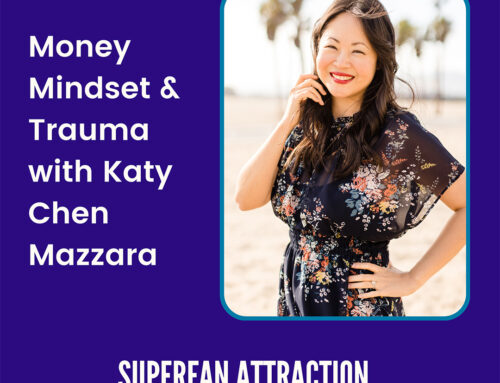
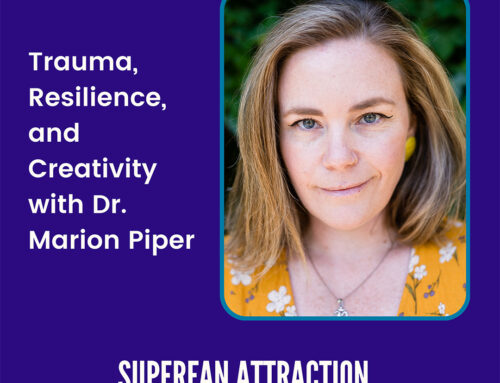
You must be logged in to post a comment.